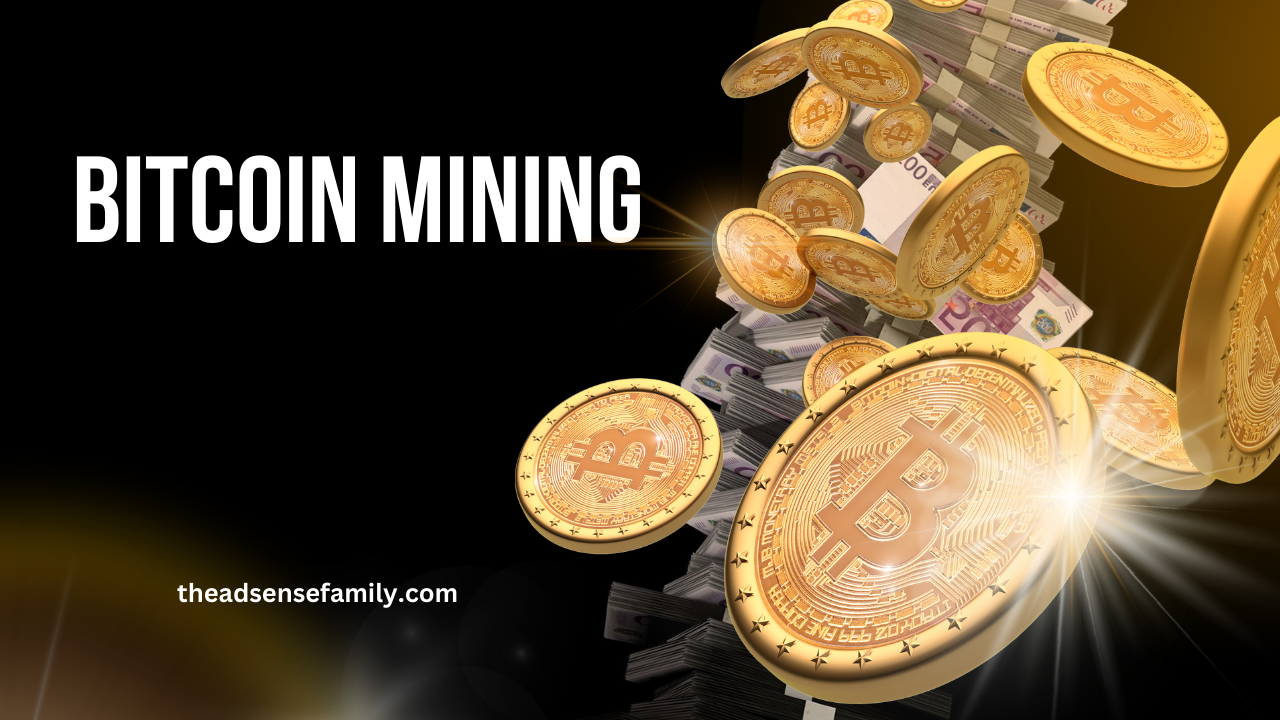How to Start Bitcoin Mining: Tips for Success
Are you intrigued by the world of cryptocurrency and looking to dive into Bitcoin mining? As the original and most valuable digital currency, Bitcoin continues to captivate investors and tech enthusiasts alike. While getting started with Bitcoin mining can seem daunting, with the right approach and resources, you can join this lucrative field. In this guide, you’ll discover the essential steps to begin your Bitcoin mining journey, from selecting the proper hardware to joining a mining pool. Whether you’re a crypto novice or a seasoned trader, these tips will help you navigate the complexities of Bitcoin mining and set yourself up for potential success in the digital gold rush.
What Is Bitcoin Mining?
Bitcoin mining is the process of validating transactions and maintaining the integrity of the Bitcoin blockchain network. Miners use powerful computers to solve complex mathematical problems, competing to be the first to find a solution. The successful miner is rewarded with newly created bitcoins.
How It Works
Miners use specialized hardware called Application-Specific Integrated Circuits (ASICs) to generate a 64-digit hexadecimal number, or hash. They keep changing a “nonce” value until they find a hash that meets the network’s difficulty criteria. This process is essential for verifying transactions and maintaining the decentralized, peer-to-peer nature of the Bitcoin network.
Economic Considerations
The economics of Bitcoin mining involve balancing the costs of electricity, mining systems, and network infrastructure against the potential rewards. As mining difficulty increases and rewards decrease over time, profitability becomes increasingly challenging for individual miners.
How Does Bitcoin Mining Work?
Bitcoin mining is the process of validating transactions and creating new bitcoins through complex computational problem-solving. Miners use specialized hardware to generate a cryptographic hash that meets specific criteria set by the network.
The Mining Process
Miners compete to solve mathematical puzzles, with the first to find the solution earning the right to add a new block to the blockchain. This process, known as proof-of-work, ensures the security and integrity of the Bitcoin network.
Rewards and Challenges
Successful miners receive newly minted bitcoins as a reward. However, the difficulty of mining increases over time, requiring more computational power and electricity. This has led to the rise of large-scale mining operations and mining pools, making it challenging for individual miners to remain profitable.
What Equipment Do You Need for Bitcoin Mining?
Essential Hardware
To start Bitcoin mining, you’ll need specialized hardware designed for the task. Application-specific integrated circuits (ASICs) are the most powerful and efficient option. These purpose-built machines, like the Bitmain Bitcoin Miner S19 XP, offer high hash rates of 141 terahashes per second (TH/s) and cost around $4,653. For even higher performance, consider models like the Bitcoin Miner S21 Hyd., which can achieve 335 TH/s but comes with a heftier price tag.
Additional Components
Besides the mining hardware, you’ll need:
- A cryptocurrency wallet to store your mined coins
- Mining software to connect your hardware to the Bitcoin network
- A reliable internet connection
- Access to low-cost electricity to maximize profitability
Joining a mining pool can increase your chances of earning rewards, especially for individual miners competing against large-scale operations.
How to Choose the Best Bitcoin Mining Software
Consider Your Hardware Compatibility
When selecting Bitcoin mining software, it’s crucial to ensure compatibility with your hardware. Different software supports various types of mining rigs, including CPUs, GPUs, and ASICs. For instance, CGMiner is a flexible option that works with multiple hardware types, while EasyMiner is better suited for less powerful CPU and GPU setups.
Evaluate Your Experience Level
Your mining expertise should guide your software choice. Beginners may prefer user-friendly options like EasyMiner, which offers a simple setup process. More experienced miners might opt for advanced platforms like Awesome Miner, which provides a centralized dashboard for managing multiple mining activities.
Assess Profitability Features
Look for software that maximizes your earnings potential. Some programs, like Kryptex Miner, automatically switch to mine the most profitable cryptocurrency. However, be mindful of fees and payout requirements, as these can impact your overall profitability. Consider your specific goals, whether it’s maximizing returns or exploring multiple cryptocurrencies.
Tips for Optimizing Your Bitcoin Mining Operation
Upgrade Your Hardware
To maximize your mining profits, invest in specialized ASIC (Application-Specific Integrated Circuit) miners. These offer higher hash rates and energy efficiency compared to GPUs or CPUs. Consider factors like cost, hashing power, and manufacturer reputation when selecting equipment.
Fine-Tune Your Setup
Optimize your mining software and settings for peak performance. Implement effective cooling solutions like fans or liquid cooling systems to prevent overheating. Regular maintenance, including cleaning equipment and replacing fans, is crucial for longevity.
Enhance Efficiency
Explore advanced techniques like overclocking or undervolting to boost performance while reducing power consumption. According to D-Central Technologies, implementing heat recycling systems and predictive maintenance with AI can further optimize operations. Stay informed about industry trends, such as renewable energy integration and decentralized mining pools, to maintain a competitive edge.
Risks and Challenges of Bitcoin Mining
High Energy Consumption and Environmental Impact
Bitcoin mining is an energy-intensive process that requires vast amounts of computing power and electricity, contributing significantly to greenhouse gas emissions. The environmental toll of mining operations is comparable to the electricity usage of many midsize countries.
Financial and Operational Risks
The profitability of Bitcoin mining is decreasing over time due to rising competition and reduced block rewards. Miners face substantial upfront costs for specialized hardware, which can quickly become obsolete. Fluctuating cryptocurrency prices and electricity costs further impact overall profitability.
Security Vulnerabilities
Cryptocurrency miners are vulnerable to various security risks, including hacking, malware, and cyberattacks. These threats can result in the theft of mining rewards and confidential data, potentially compromising the entire operation.
Community and Regulatory Challenges
Bitcoin mining operations often face opposition from local communities due to noise pollution and environmental concerns. Additionally, regulatory challenges are emerging as governments grapple with the environmental and economic impacts of large-scale mining operations.
Is Bitcoin Mining Profitable? Calculating Your Profits
Factors Affecting Profitability
Bitcoin mining profitability depends on several key factors. According to NiceHash, these include the current Bitcoin price, your mining hardware’s hashrate, and network mining difficulty. Electricity costs also play a crucial role in determining your bottom line.
Using Mining Calculators
To estimate your potential earnings, utilize online mining calculators. CoinWarz’s calculator allows you to input variables like hashrate, power consumption, and electricity costs. For instance, with a 390 TH/s hashrate and $0.05/kWh electricity cost, daily profit could be around $8.09.
Considering Long-Term Viability
It’s important to note that mining profitability can fluctuate rapidly. HashrateIndex.com’s calculator estimates payback periods and internal rates of return, helping you assess long-term viability. Always factor in hardware costs and potential Bitcoin price volatility when making your decision.
How Long Does It Take to Mine 1 Bitcoin?
Mining Bitcoin is a complex process that depends on several factors. The Bitcoin network produces one block approximately every 10 minutes, with each block currently rewarding 3.125 bitcoins. However, this doesn’t mean you’ll mine 1 Bitcoin in just over 3 minutes.
Factors Affecting Mining Time
- Mining hardware capabilities
- Network difficulty level
- Total network hash rate
- Whether mining solo or in a pool
For an individual miner with average hardware, it could take months or even years to mine 1 Bitcoin due to high competition and network difficulty. As of November 2022, the network’s hash rate was 224.78M, indicating significant computational power dedicated to mining.
To increase chances of earning Bitcoin, many miners join pools, combining their hash power for more consistent rewards, though profits are shared among participants.
Conclusion
As you embark on your Bitcoin mining journey, remember that success requires careful planning and ongoing optimization. Start small, educate yourself thoroughly, and scale up gradually as you gain experience. Stay informed about the latest mining hardware, pool options, and industry developments to maintain your competitive edge. While profitability can be challenging, approaching Bitcoin mining as a long-term investment with realistic expectations will serve you well. With the right strategy, equipment, and perseverance, you can establish yourself in this dynamic and potentially rewarding field. The world of cryptocurrency continues to evolve, and your mining efforts may play a role in shaping its future.





